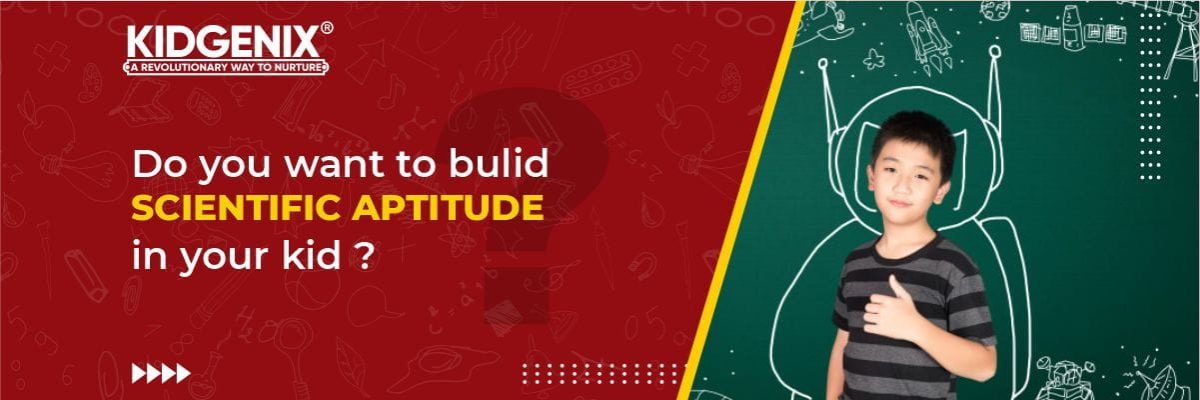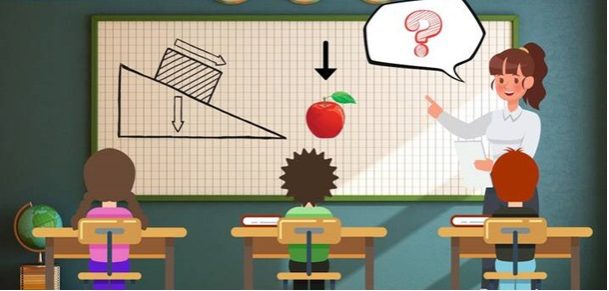
Science Experiments (Experiential Learning)
In its simplest form, experiential learning means learning from experience or learning by doing. Experiential education first immerses learners in an experience and then encourages reflection about the experience to develop new skills, new attitudes, or new ways of thinking. Can You Imagine someone teaching you to swim or drive a vehicle, within four walls of Classroom? It is impossible !! You have to get into the water to learn swimming and you have to be out on the road to learn driving. Some subjects are skill based subjects needs to be supported by practice. In these subjects Practical knowledge is more important than theoretical knowledge.
Science Experiments - Grade 1
Experiential Education is Based on New Education Policy and it is mainly to enhance Critical and Logical thinking to develop new skills towards innovation.
₹4500
Science Experiments - Grade 2
Experiential Education first immerses learners in an experience and then encourages reflection about the experience to develop new skills, new attitudes, or new ways of thinking.
₹4500
Science Experiments - Grade 3
Some subjects are skill based subjects needs to be supported by practice. In these subjects Practical knowledge is more important than theoretical knowledge.
₹4999
Science Experiments - Grade 4
Can You Imagine someone teaching you to swim or drive a vehicle, within four walls of Classroom? It is impossible !! You have to get into the water to learn swimming and you have to be out on the road to learn driving.
₹4999
Science Experiments - Grade 5
Experiential Education is Based on New Education Policy and it is mainly to enhance Critical and Logical thinking to develop new skills towards innovation.
₹5500
Science Experiments - Grade 6
Experiential Education first immerses learners in an experience and then encourages reflection about the experience to develop new skills, new attitudes, or new ways of thinking.
₹5500
Science Experiments - Grade 7
Some subjects are skill based subjects needs to be supported by practice. In these subjects Practical knowledge is more important than theoretical knowledge.
₹5999
Science Experiments - Grade 8
Can You Imagine someone teaching you to swim or drive a vehicle, within four walls of Classroom? It is impossible !! You have to get into the water to learn swimming and you have to be out on the road to learn driving.
₹5999
Science Experiments - Grade 9
Can You Imagine someone teaching you to swim or drive a vehicle, within four walls of Classroom? It is impossible !! You have to get into the water to learn swimming and you have to be out on the road to learn driving.
₹6500
Science Experiments - Grade 10
Experiential Education first immerses learners in an experience and then encourages reflection about the experience to develop new skills, new attitudes, or new ways of thinking.
₹6500
Science Experiments - Grade 11
Experiential Education first immerses learners in an experience and then encourages reflection about the experience to develop new skills, new attitudes, or new ways of thinking.
₹8000
Science Experiments - Grade 12
Can You Imagine someone teaching you to swim or drive a vehicle, within four walls of Classroom? It is impossible !! You have to get into the water to learn swimming and you have to be out on the road to learn driving.
₹8000
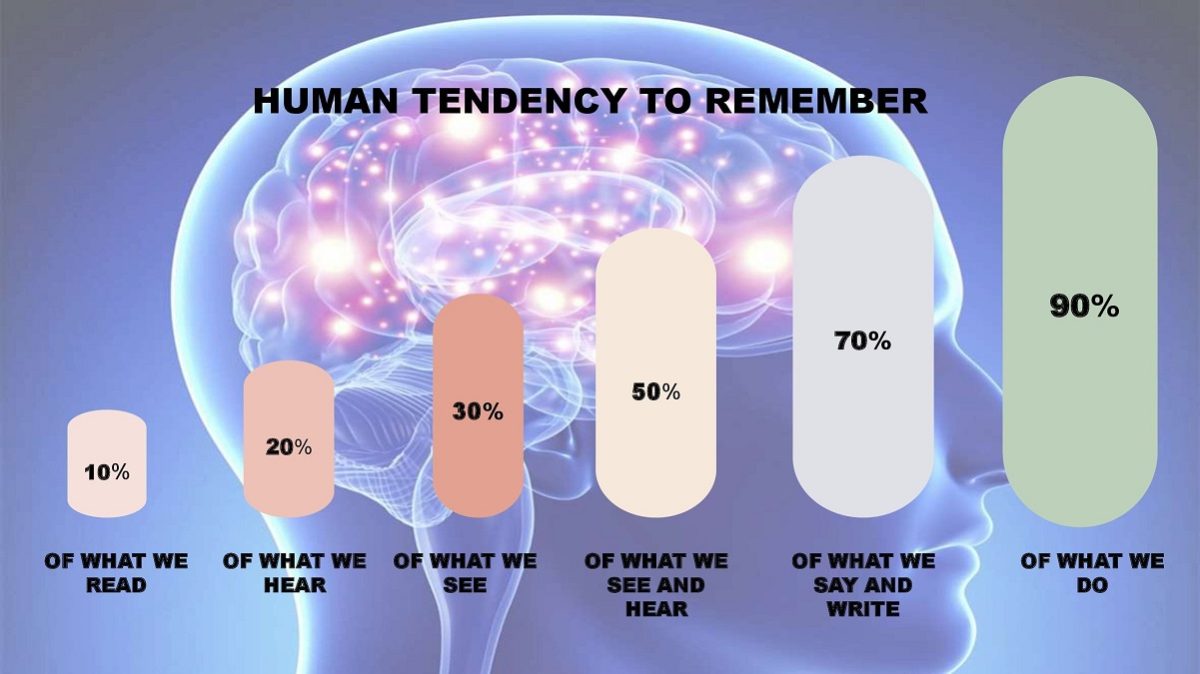
Practical Work Promotes Experiential Learning
The first theories of experiential learning arose in the mid-nineteenth century as attempts to move away from traditional formal education, where teachers simply presented students with abstract concepts, and toward an immersive method of instruction. Students would “learn by doing”, applying knowledge to experience in order to develop skills or new ways of thinking .
In a world where children spend most of their education cooped up in small boxes called classrooms, real-world experiential learning can be truly transformational for 21st century youth. As Albert Einstein famously said “Knowledge is Experience. Everything else is just information.”
Importance of Practical Learning
Practical work encourages self-learning.
When you do something with your own hands you remember better.
Practical work is good change from the monotonous lecture method.
Practical work makes student independent and increase their confidence.
It familiarizes students with tools and equipment that he will be required to use.
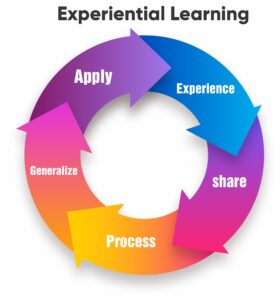
Running Experiential Activities: The Role of the Instructor.
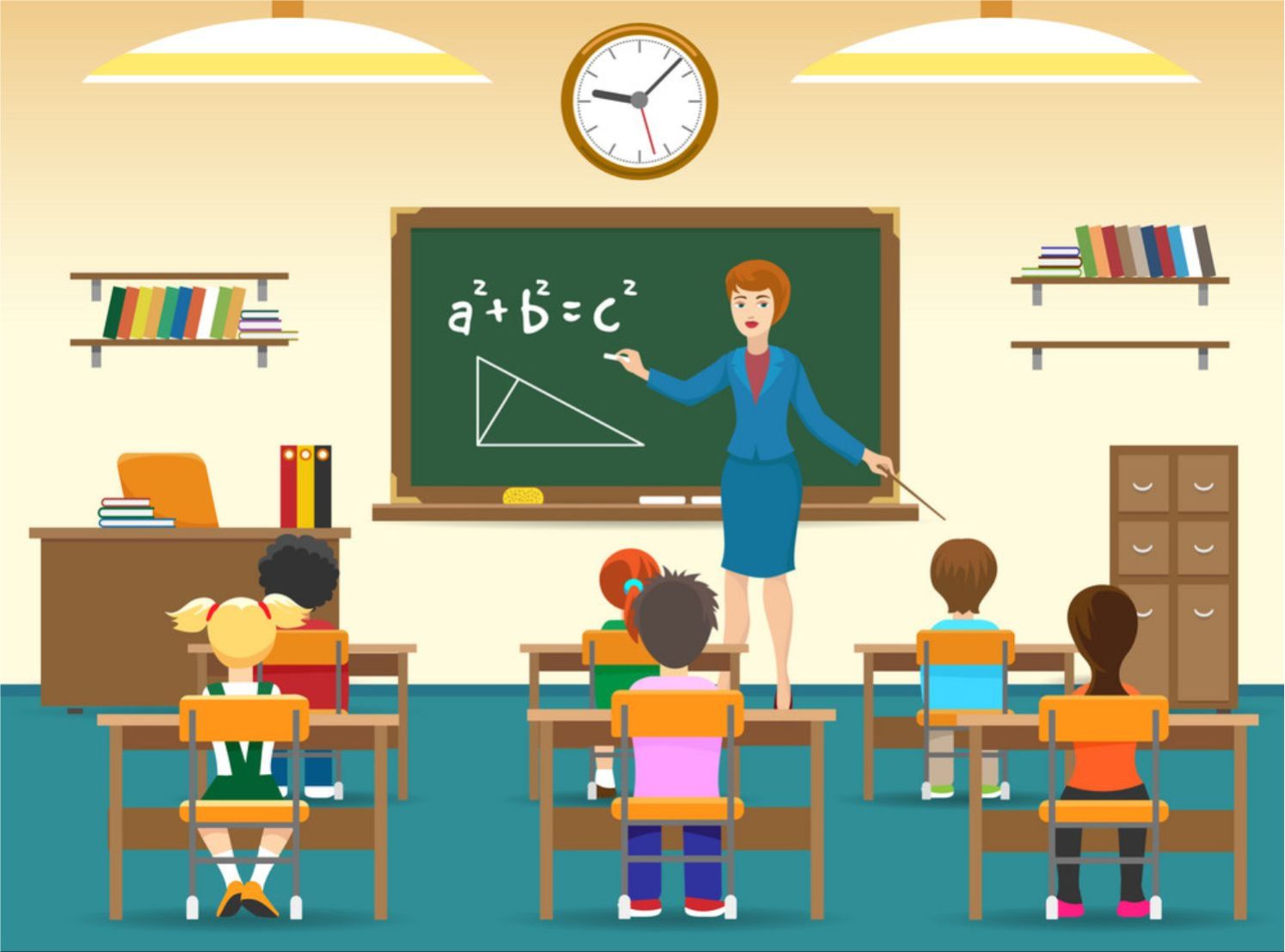
The role of the instructor in the experiential classroom is different than in the traditional classroom. In the experiential classroom, the instructor is a guide, a cheerleader , a resource and a support.
I would like to end with a funny anecdote. One Mr. X had a master’s degree in automobile engineering and worked on a high post in a reputed organisation. One day, on his way to the office, his car stopped working and he got off to investigate the problem. With his high qualification and expertise in the area, he examined each part of the car carefully but couldn’t find any fault. After a while, a peasant who was passing asked him, “What’s the matter?”
He answered, “Well, something is wrong with the car.”
The peasant replied, “Did you check the tank?”
Perhaps there is no petrol.
The peasant was right.
This is what might happen when theoretical knowledge is not supported by practical knowledge.
